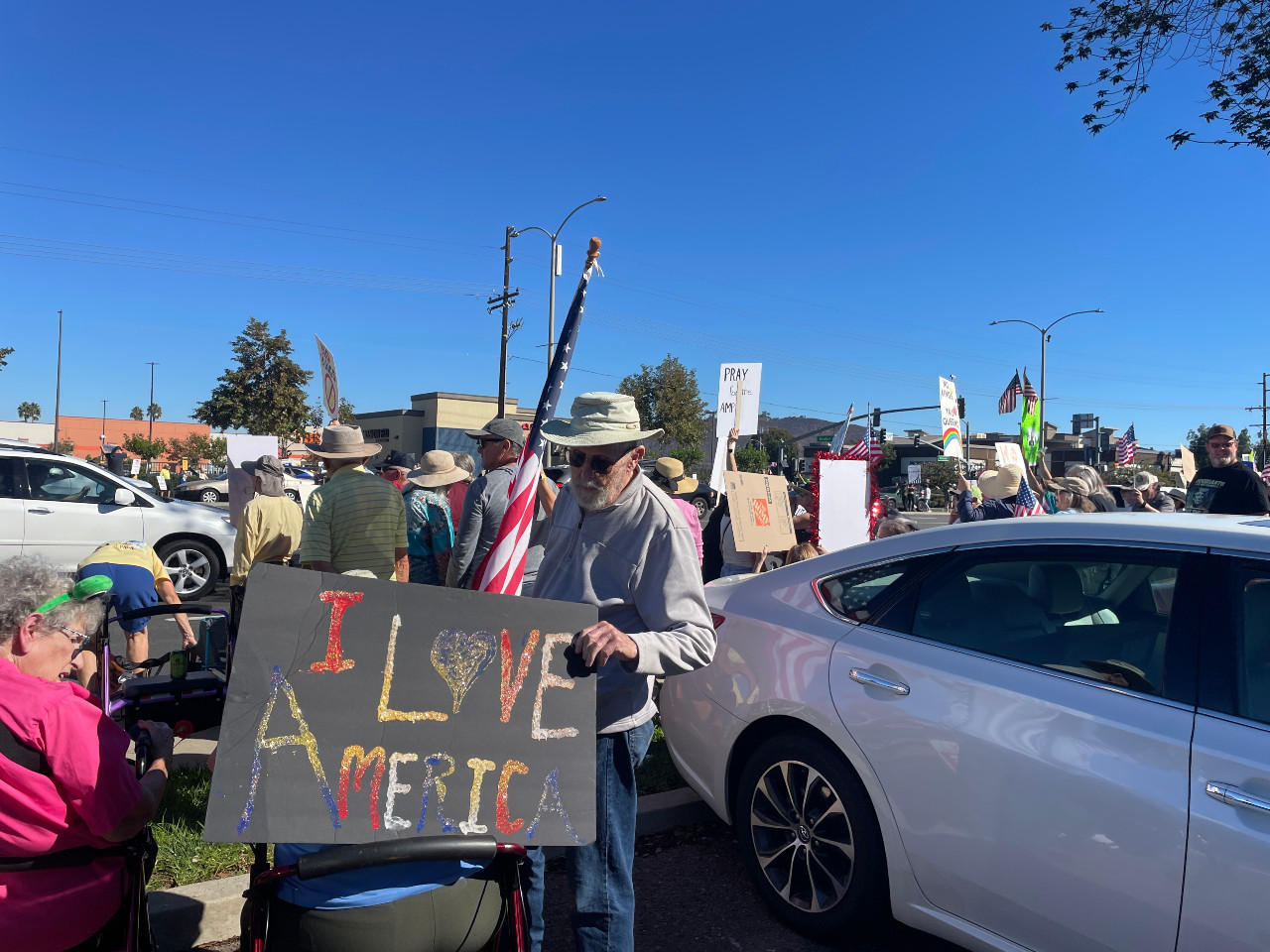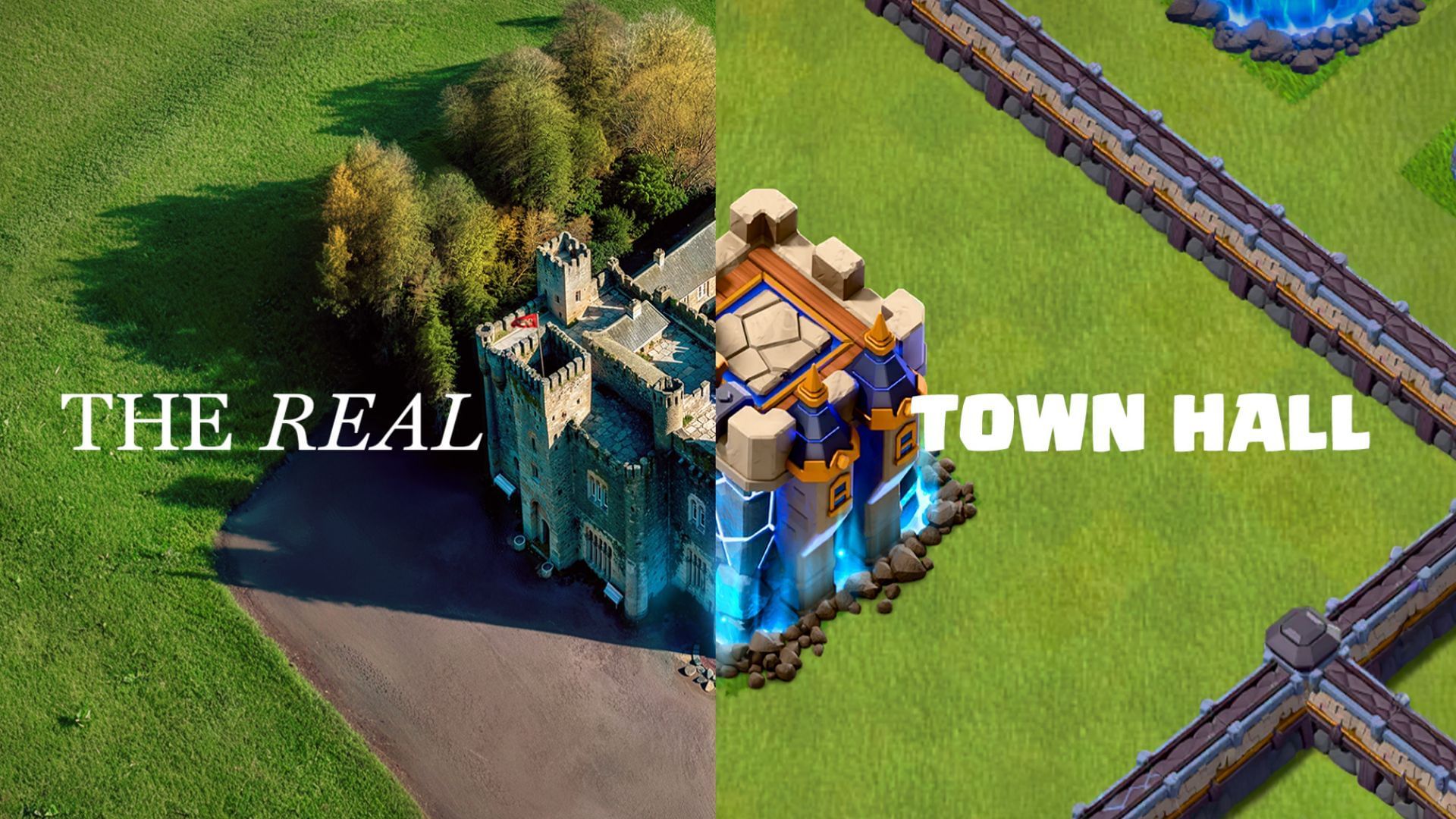The second round of “No Kings” protests proved to be a festive gathering on Saturday in San Diego. Though Republicans have recently labeled these nationwide events as “Hate America” rallies, thousands of San Diegans bearing signs and donning costumes came together to tell a different story.
Organizers describe the “No Kings” protests as a nonviolent day of action against the Trump administration. Approximately 25,000 people showed up in downtown San Diego alone, according to police estimates, with thousands more attending related events across the region. Nationwide, an estimated 7 million people participated in cities and towns on Saturday — 2 million more than at the last “No Kings” protest on June 14, organizers said.
“I’ve been protesting my whole life for America. Everything. Back to the ’60s,” said Bob Begin, a local resident who attended “No Kings” in El Cajon. “Today’s the most important one, because it matters to our grandkids, to our children. It’s up to us.”
### Inspiration from Portland’s Protesters
In late September, President Donald Trump described Portland as “war-ravaged” and “like living in hell.” Portlanders responded by dressing in inflatable animal costumes to peacefully protest the federal government’s deployment of the National Guard. That viral moment on social media inspired San Diegans on Saturday.
Marchers — and their pets — arrived in costumes ranging from animals and mermaids to the Statue of Liberty. Music was a lively part of the day, with participants playing instruments and dancing, creating a festive atmosphere despite the protest’s serious purpose.
There were 16 “No Kings” events across San Diego County alone. Times of San Diego visited four of them to share protesters’ experiences and thoughts.
—
### Civic Center and Waterfront Park
In downtown San Diego, crowds spread across three locations before converging to march up Pacific Highway. A purple hippo and a blue shark set a joyful tone, dancing in Waterfront Park to the beat of a drumming circle.
Along the route, protesters enjoyed a DJ, a one-man band, and even bagpipes. Those without instruments improvised by slapping beats on upside-down buckets.
Lashaan Crane and her husband, both musicians, brought percussion instruments. “We felt it was right to bring the pulse and the drum to the march — to spread the love,” Lashaan said.
A father-son veteran duo also marched. Mario Posada Sr., a Vietnam War U.S. Marine Corps veteran, explained, “As a 17-year-old, I volunteered to risk my life to serve my country and defend our democracy. That’s why I’m here today.”
His son, Mario Posada Jr., a 27-year-old U.S. Air Force veteran who served in Yemen and identifies as a queer Latino, expressed concern about Trump’s attacks on marginalized service members.
“I did not serve my country for this,” he said. “I don’t want to trade a democracy for a dictatorship.”
Eileen Johnson, who attended her first protest at 82 years old, shared similar worries. “This is the first time I felt like I really had to do something,” she said. “I can’t stand what Trump is doing to our democracy. I’m seriously worried that we’re losing our rights and our democracy.”
—
### Ruocco Park
The protest drew people of all ages — even the youngest participants. Around 60 children and their parents gathered at Ruocco Park’s kid-friendly “No Kings” addition, chanting, “This is what democracy looks like!”
The group played and rallied until joining the larger protest on Harbor Drive.
San Diego Families for Justice organized the event to create a welcoming space for parents and children to engage in progressive activism.
“Big marches can be overwhelming for kids. Little legs can’t always go that far,” said Lisa Riggs, who co-founded the group earlier this year with Nancy Behm. “We wanted to create a space where we can show up and invite others to join us.”
Parents brought babies as young as seven months old, toddlers, and older kids to participate.
—
### El Cajon
Along Fletcher Parkway, about 3,000 people assembled, many sitting in lawn chairs and truck beds. The crowd included older East County residents continuing their lifelong civic engagement.
Bob Begin, now in his 70s, emphasized the importance of staying politically active for future generations.
“It’s our country. We cannot let this happen,” Begin said passionately. “We won’t let this happen because we’ve got children and grandchildren who are still growing up and going through the ranks. And if we don’t do it, nobody will.”
Many treated “No Kings El Cajon” like a family reunion, bringing music, waving American flags, and holding signs with slogans such as “I Love America” and “Hate Never Made Anything Great.”
Mary Utley was among those in costume. Rather than an animal or character, she wore Revolutionary War military attire and played 18th-century music.
“My symbolism is democracy,” Utley said. “It represents what the forefathers wanted this country to be, which I feel the current regime is not following. I also come from ancestors from the Revolutionary War. We’ve been here since the 1600s, so I wanted to represent that as well—to get out here and let our voices be heard. It is ‘We the People of the United States,’ not ‘I, a wannabe dictator.’”
—
### College Area
A slightly smaller but still determined group gathered at the intersection of Montezuma Road and College Avenue for “No Kings College Area.”
Kiersten Ciallella considered herself politically active but found the solidarity deeply moving.
“It gives me some hope and something to hold on to, quite frankly,” she said. “There are so many times we’re isolated from each other. When we come together, we feel united and more powerful, especially when there is so much overt attempt to silence people.”
For second-year history student Pauʻu Vaipula, the protest marked her first-ever demonstration.
“I was kind of scared to come, seeing the brutality of it all and how serious it could get,” Vaipula admitted. “But honestly, nothing’s more brutal than the actual outcome of this administration.”
Vaipula advised others hesitant to attend protests to bring a friend.
“Do some deep digging and think of all the people who have impacted your life, because that is where people start to care—when it affects them, even though it shouldn’t have to,” she said. “Think about your teachers, friends, parents, relatives—this affects everyone.
“So I think digging down, finding empathy, and extending it to others is the biggest part.”
—
The “No Kings” protests demonstrated a powerful blend of creativity, community, and commitment to democracy, showing that, across generations and neighborhoods, many San Diegans are standing up to protect their rights and values.
https://timesofsandiego.com/politics/2025/10/18/thousands-bang-drum-democracy-no-kings-rallies-san-diego/

